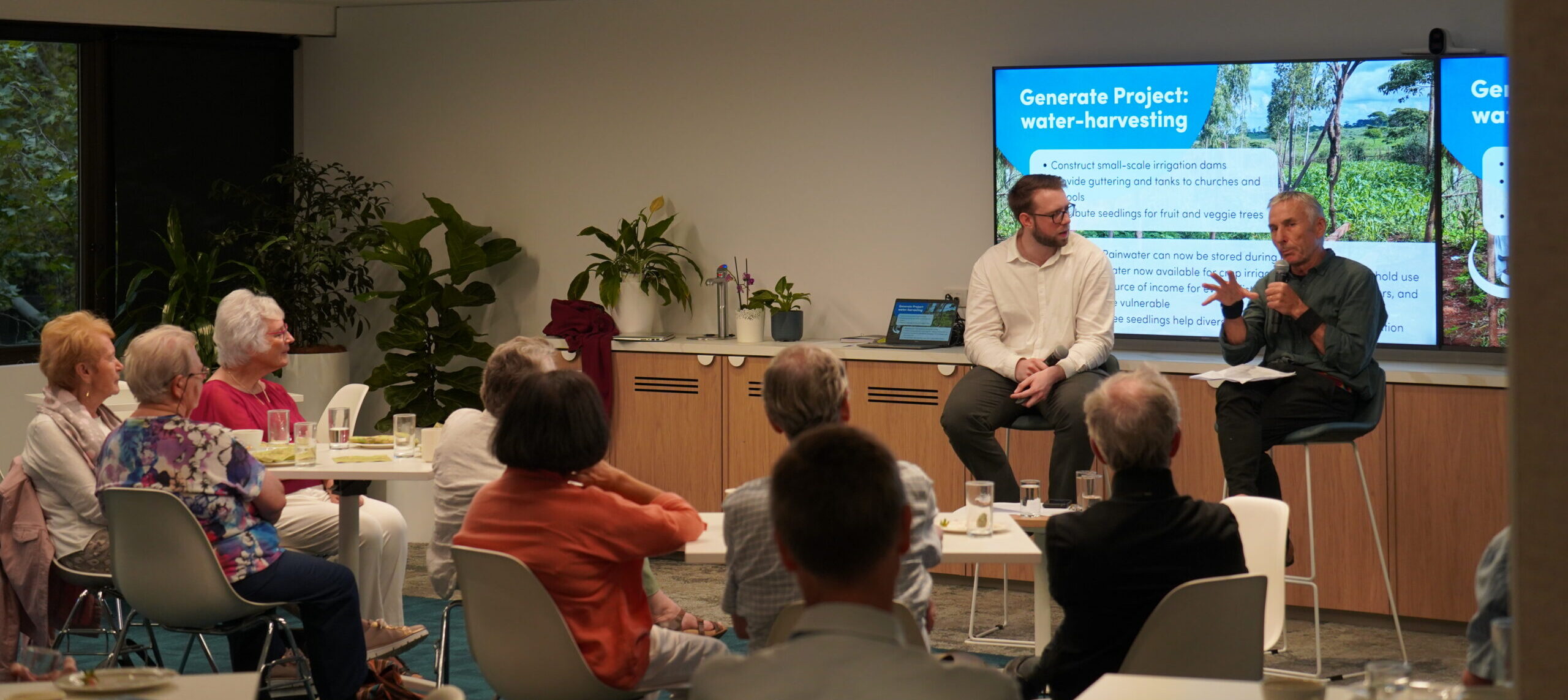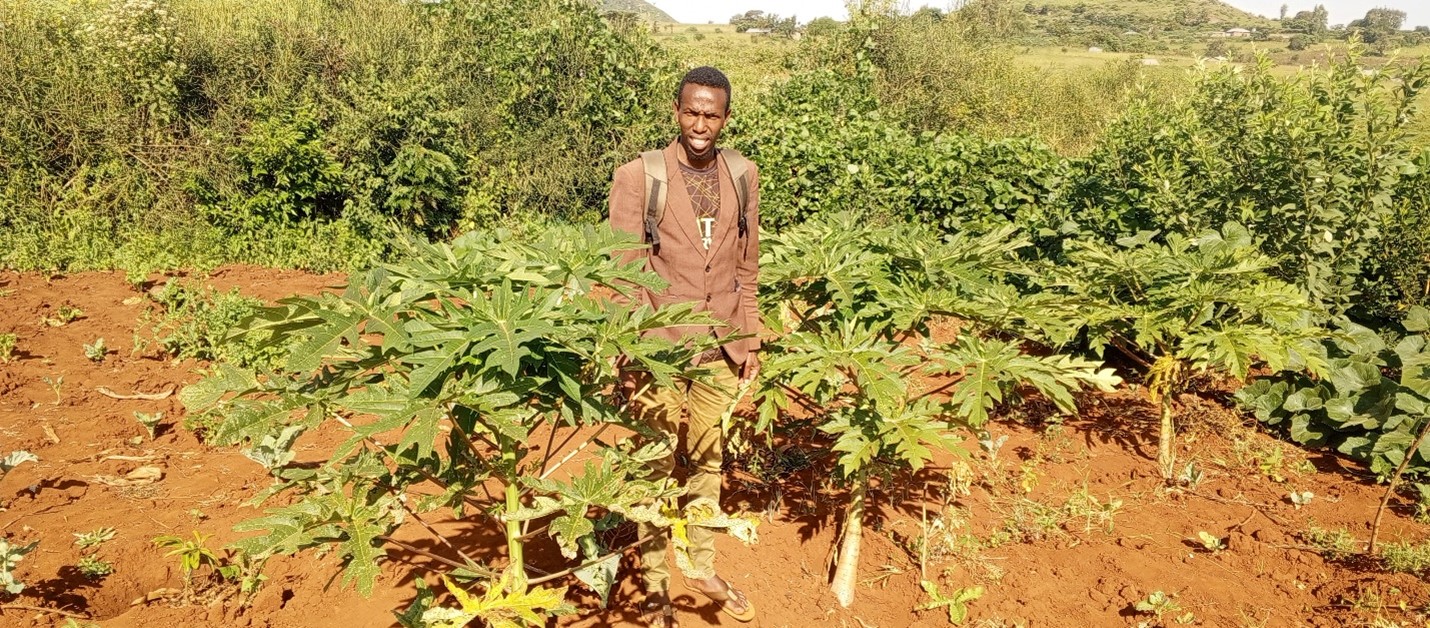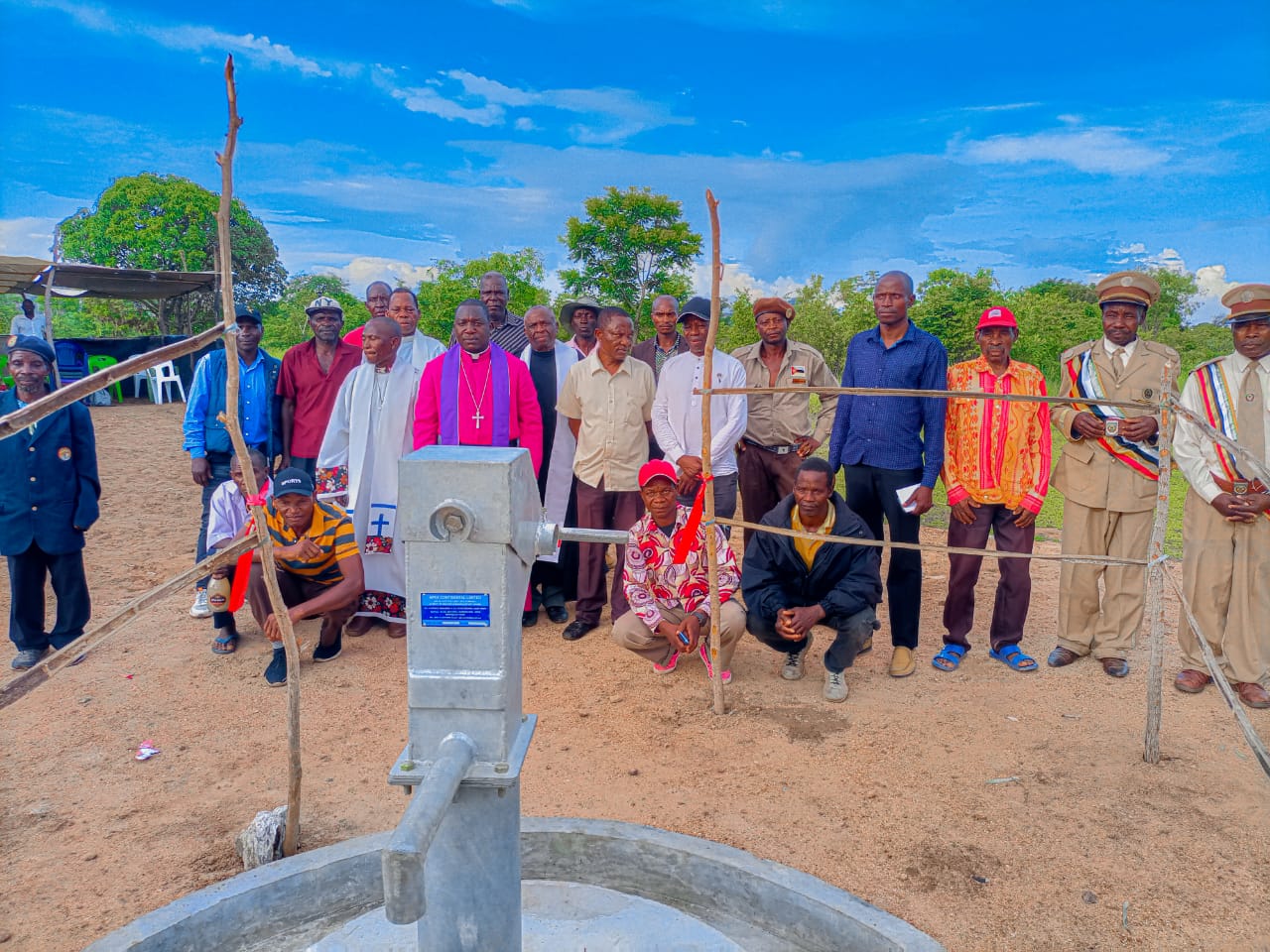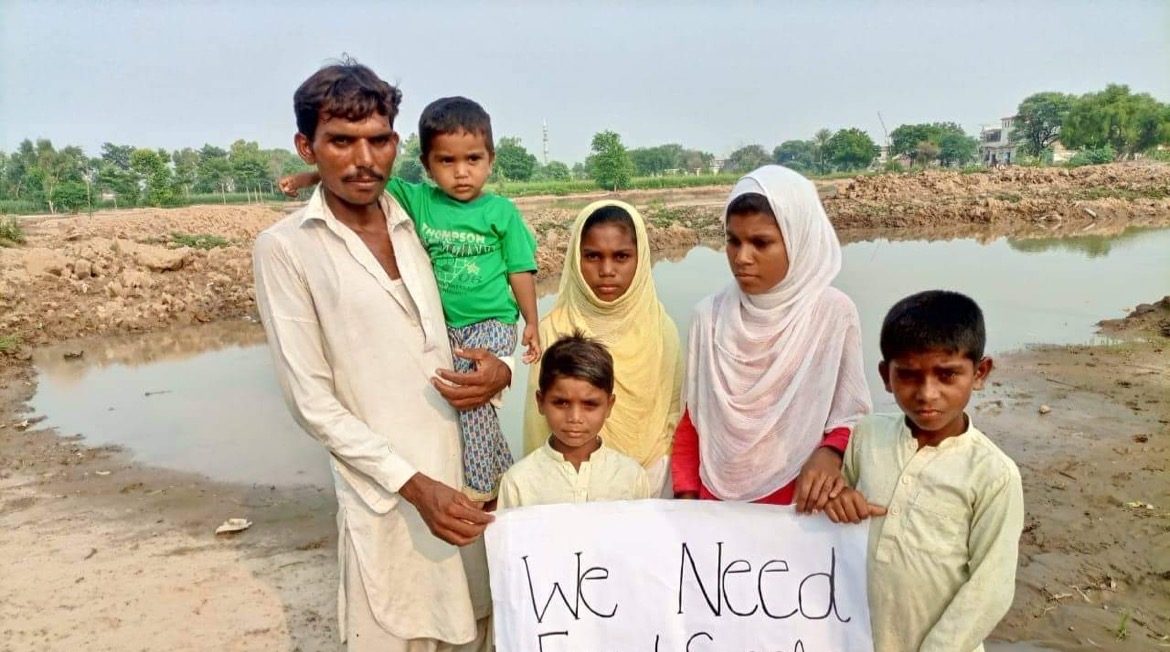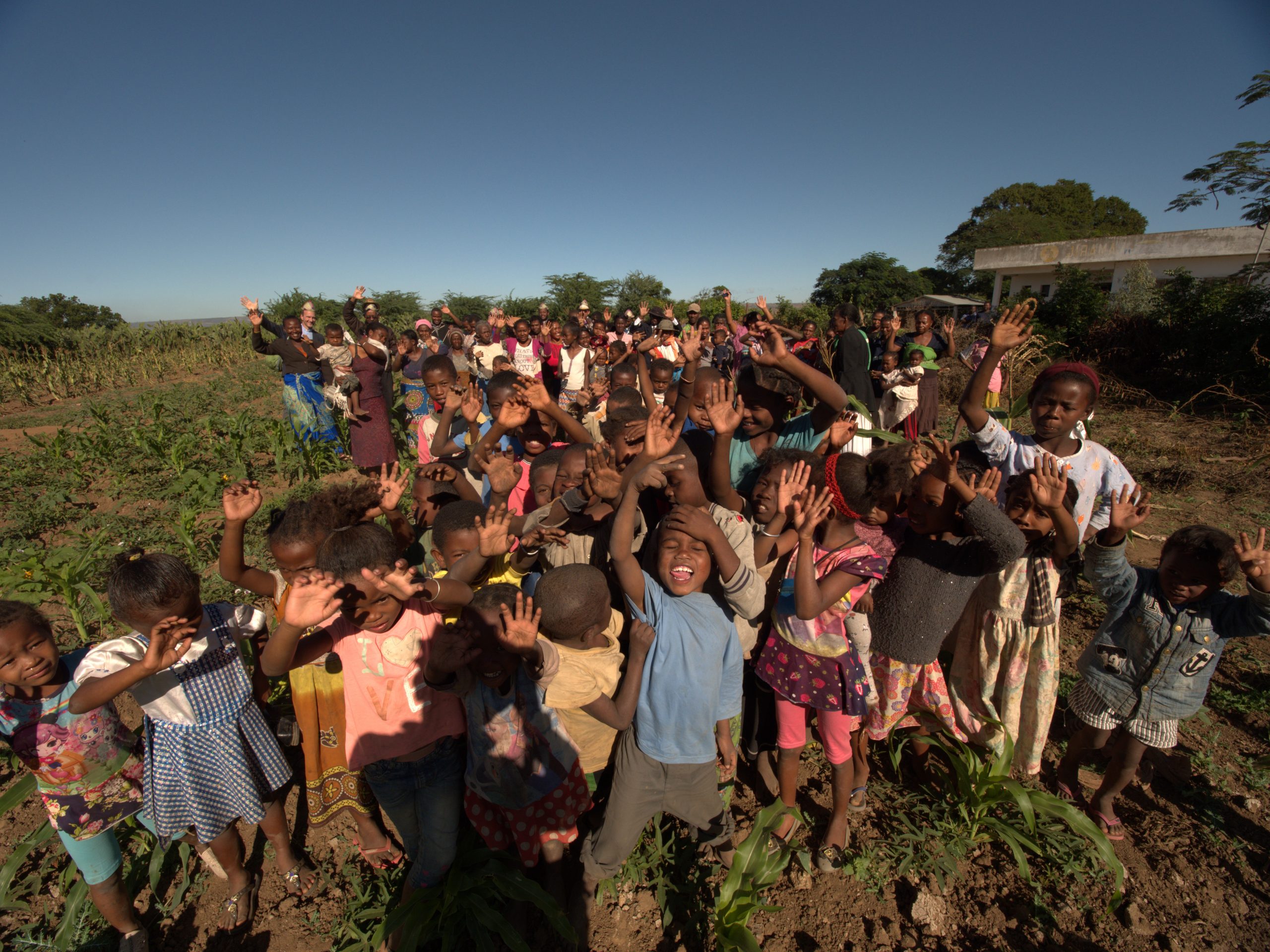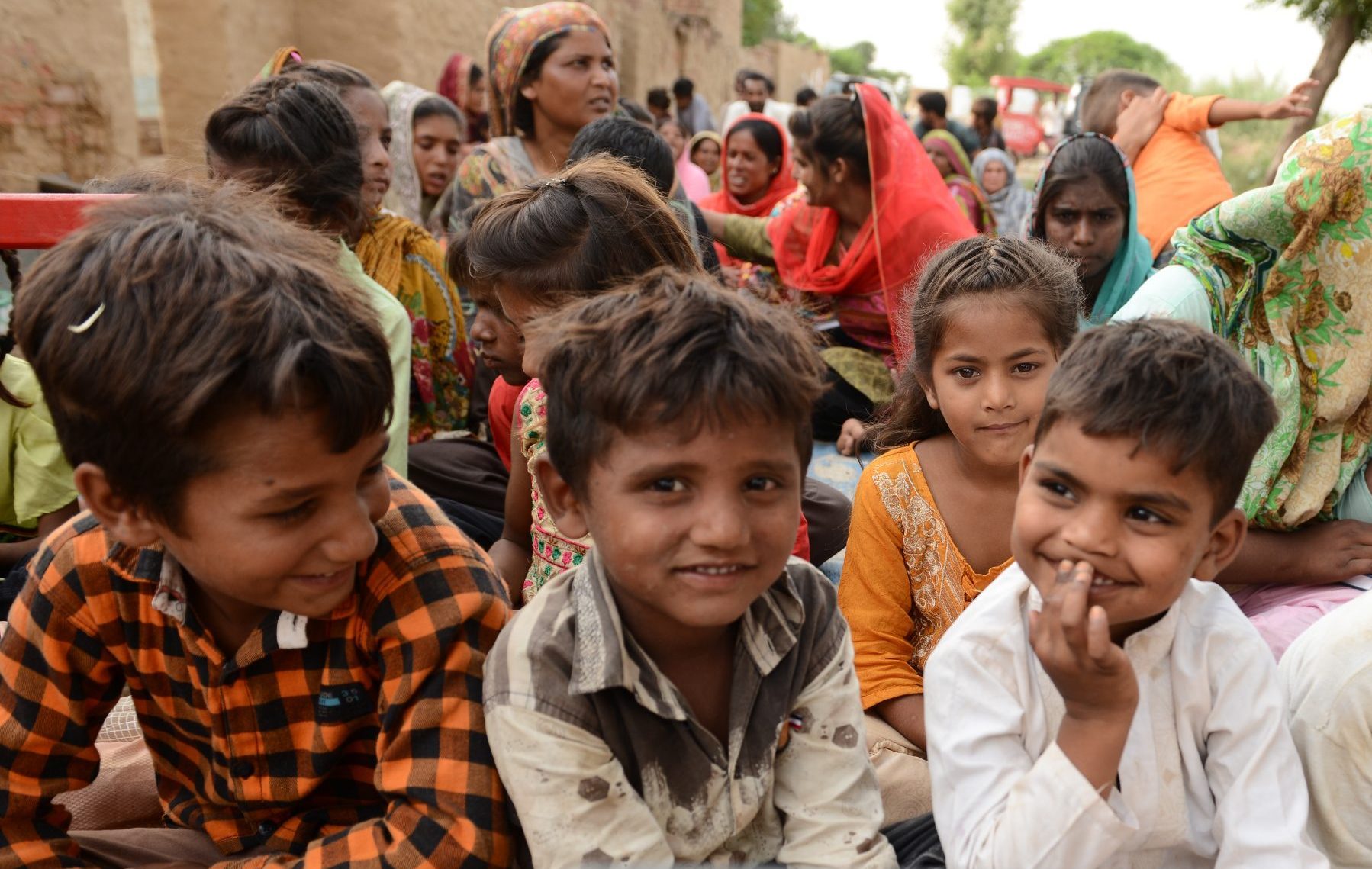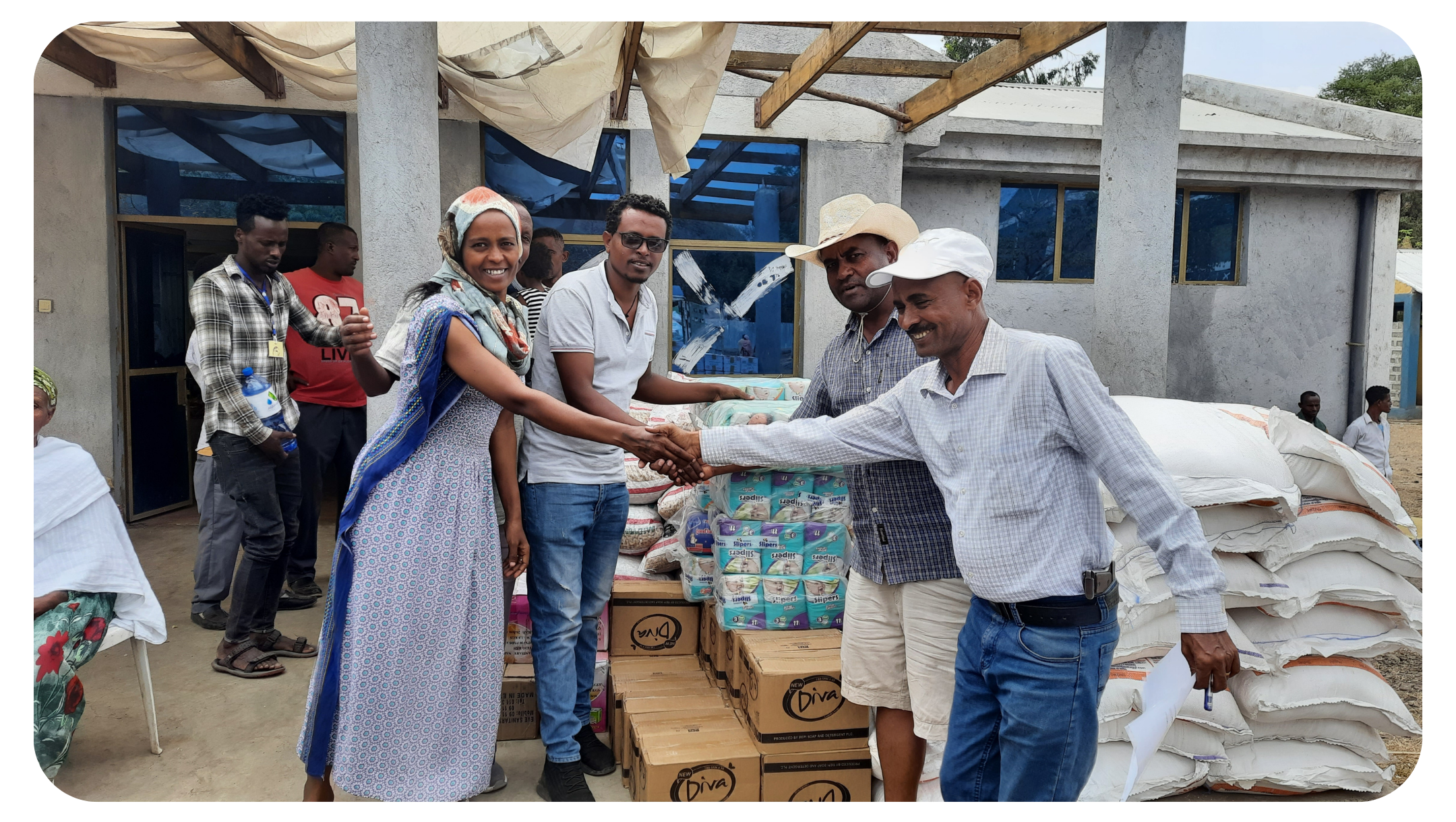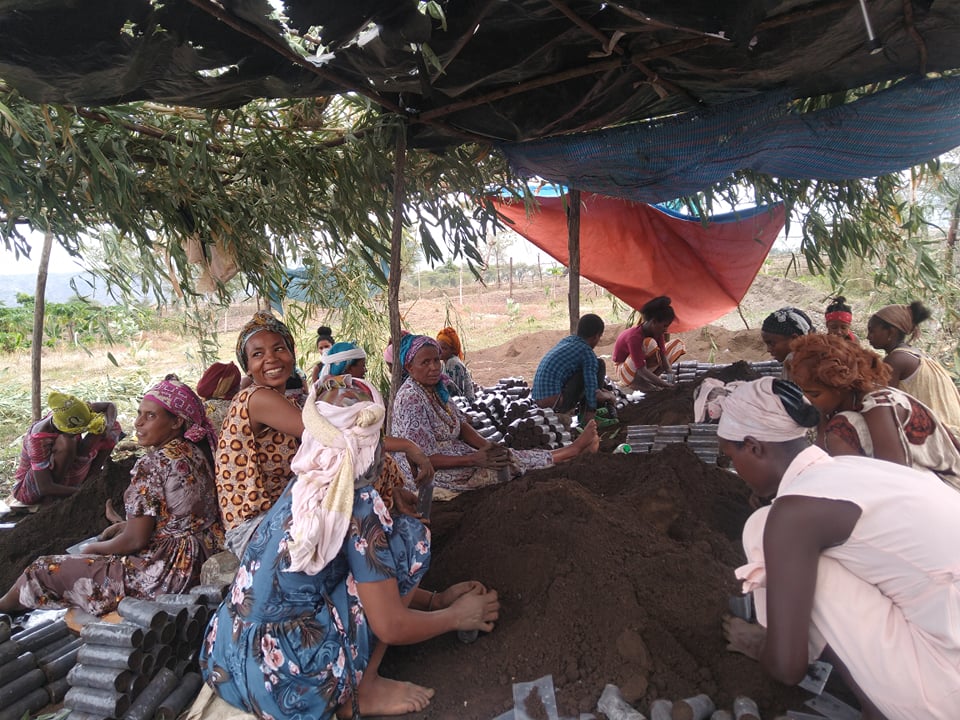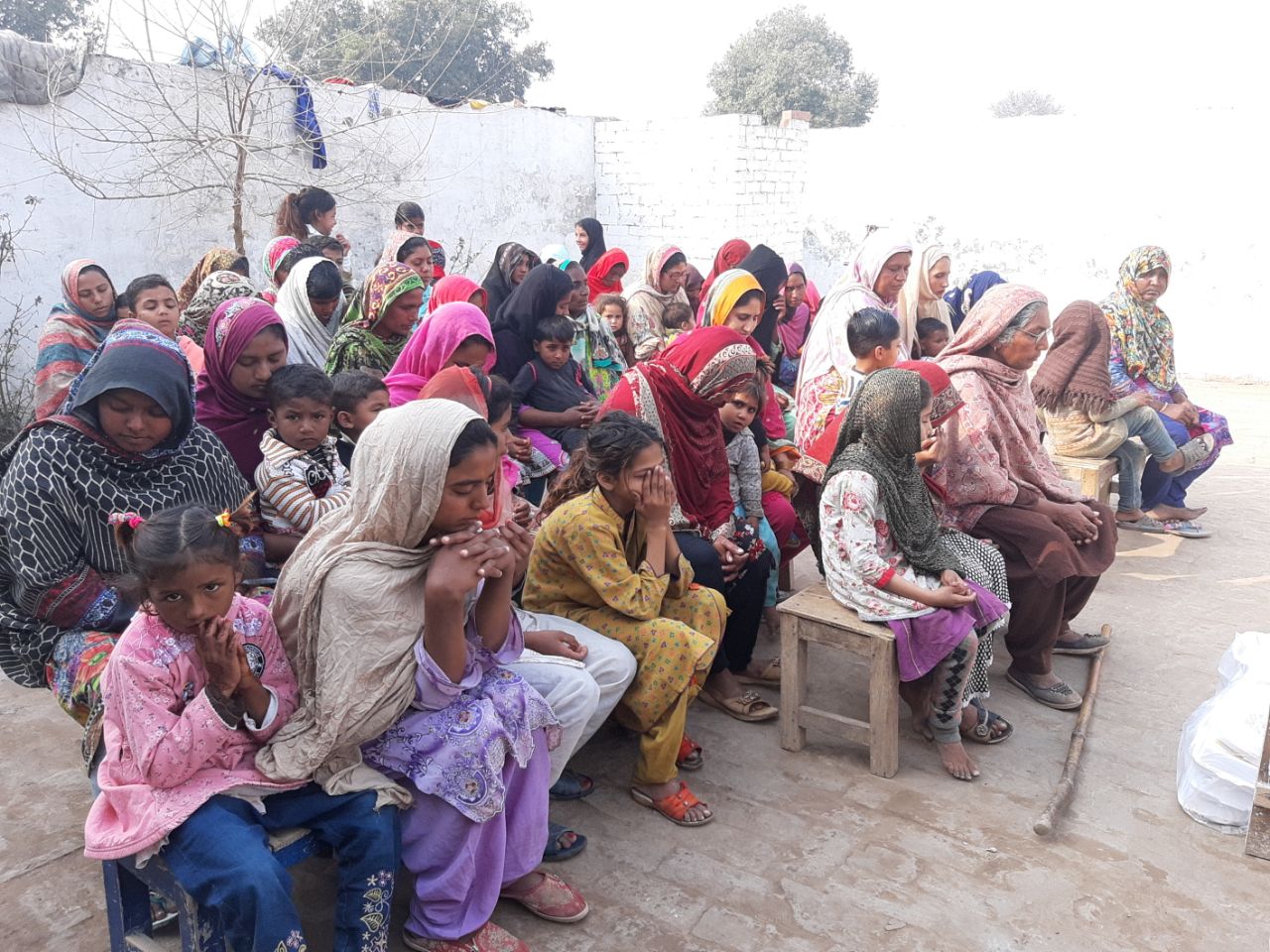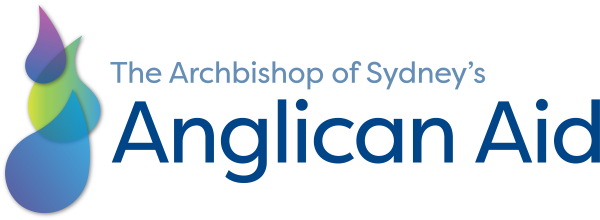Blog
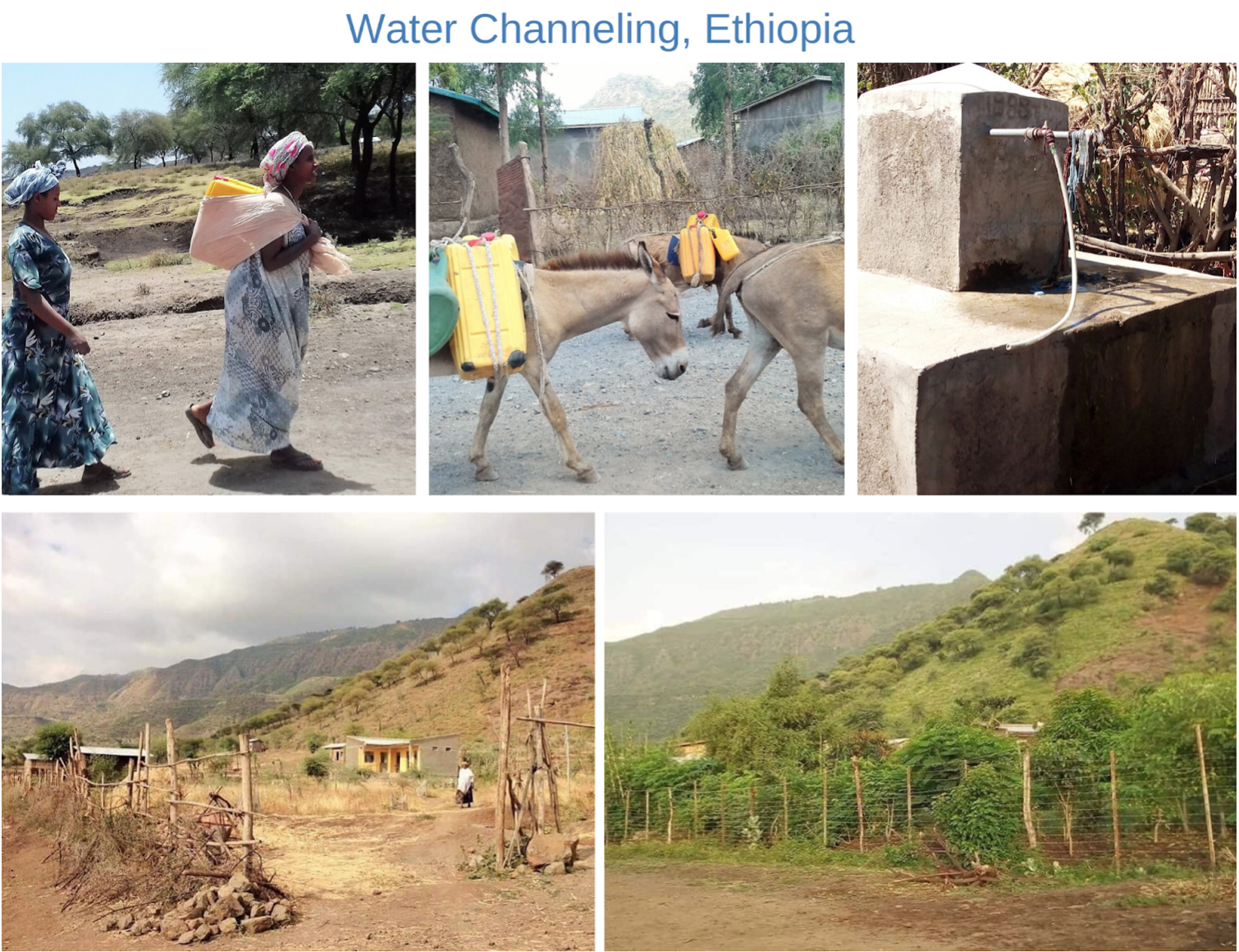
Don’t underestimate the flow-on benefits of our water projects
- by Amy Touzell
- November 24, 2019
As Anglican Aid’s Waterworks for a Thirsty World enters its third year in our water campaign, we are thankful that our projects have made a huge difference in the communities they are serving.
This year Waterworks have funded amongst other things, 4 boreholes (Jordan, Tanzania, Kenya), a water channeling system (Ethiopia), 3 toilet blocks (Tanzania, Jordan), 3 shallow wells (Tanzania), 3 water-harvesting systems (Jordan, Tanzania), 4 water tanks and water tank production (Pakistan, Zambia, Kenya), 2 solar pumps (PNG, Zambia), W.A.S.H education (Pakistan, Tanzania, Rwanda).
There are many stories of mismanaged projects by the Aid and Development sector. An NGO rolls into town and funds a water project. A bore hole is drilled and water is found. Yet tragically the benefits of the project is short-term. Mismanagement, lack of training, lack of prior consultation, and local disputes have led to the break down of the newly installed water system. Sadly, what was perceived to be a significantly life altering project for the community is now in disuse and lies in neglect.
We hope this update on our Waterworks project will not only encourage you but also assure you of the integrity of our projects. As detailed below, our projects are locally initiated and managed by our on the ground partners. The ongoing relationship we have with our partner organisation means that our water projects are not ad-hoc or stand alone. As you can read in the cases below, often the success of one project paves the way for another. Furthermore, our commitment to the local community means that our support extends beyond a single campaign year. The benefit goes both ways. For the beneficiaries, this means a commitment beyond just a project but a commitment to the well being goal. To our Waterworks fundraiser and supporter, this means you get to see the real impact of your giving over time.
Rainwater Harvesting and Shallow Wells, Lweru, Tanzania
3 million people in Tanzania do not have access to safe water. Only 5% of Tanzanians have access to a piped water source. Due to poor water infrastructure, the people in Lweru, Tanzania, depend on unclean water sources and many have to walk great distances to their water supply.
The Diocese of Lweru in Tanzania, together with Anglican Aid’s Waterworks for a Thirsty World seeks to address this issue by supporting alternative water systems, such as rainwater harvesting and the use of shallow wells.

(Pictured from top left to bottom right: 1 – 3. Villagers walked great distances to find dirty water from dry river beds or small springs, 4. Rainwater stored in tanks is free, accessible and clean, 5. The roof functions to collect the rainwater, which is then piped into large storage tanks, 6. Shallow wells means that the water is clean and access to water is easy)
Rainwater Harvesting
The people of Kemondo and Rwanganilo depend on water from nearby Lake Victoria. The water is contaminated due to pollution from transportation, fishing boats and the washing of clothes and vehicles. Drinking unclean water causes water-borne diseases, such as typhoid and stomach fever. For people like Helena, who has five children, reliance on the Lake’s water has meant frequent bouts of sickness.
In 2018, Waterworks funded a rainwater harvesting system for a church in Bukoba, Tanzania. When our project manager came to the opening, he saw first hand how the deluge of rain collected from the roof of a building quickly filled the 5000 L tanks. Having two seasons of rain in a year means that rainwater harvesting is a simple and effective way to supplement the currently inadequate water supply. The water collected of the church roof is easily accessible, safe, clean and free. The success of this project led us to support additional rainwater harvesting projects in other villages in Lweru. In 2019 we are delighted to be able to fund two additional water harvesting projects in Lweru (Kemondo and Rwanganilo). In Kemondo and Rwanganilo over 900 and 1200 people respectively will benefit from access to clean, safe water.
The water collected in the the tanks will be sold to the local people at a nominal price, with proceeds going towards maintenance and future water projects. We’ve received reports of improved health and increased productivity (less down time due to illness and time taken to collect water) for both adults and children in the community. Dativa, a mother of 6 children reports, “I used to take 1 hour to walk to a spring far from my home to get drinking water. Having the rainwater tanks mean that it only takes 15 minutes to get water for my family, so now I am freed up to do other things”. Additionally the water enables local families to water vegetable gardens for their own consumption and to gain extra income.
Shallow Wells
Waterworks also funded the construction of shallow wells in Lweru. In the last three years the Diocese of Lweru has supplied 12 shallow wells to villages facing water scarcity. The success of these projects demonstrates the effectiveness of shallow wells in providing accessible safe water at a relatively affordable cost. Shallow wells do not require extensive hydrogeological surveys and expensive drilling machines. Yet they can make clean water easily accessible to communities that would otherwise use contaminated water and eliminate the burden on people (usually women and girls) to travel great distances to get water.
We are pleased to let our supporters know that we have funded the construction of 3 shallow wells in 3 villages this year. On average $3000 will fund 1 water well for a village of 2100 people. To ensure sustainability training for water management will be conducted and a nominal user fee will be charged, with the money going towards system maintenance and funding towards additional wells.
Water Channeling, Heading North, Ethiopia
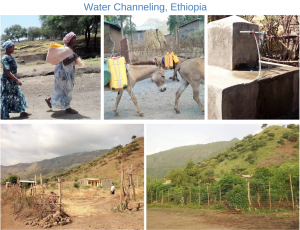

(Pictured from top left to bottom right: 1. Villagers used to walk up to 3 km each way to get water, 2. Donkeys were used to carry water from river beds, 3. Waterworks funded a water chanelling system and water was stored in tanks like this, 4. The landscape was dry and barren, 5. By contrast, two years after the installation of the water project, the same landscape is green and fertile, with an orchard full of fruit trees.)
Since we started Waterworks 2017 we have been supporting a community in Yellen, Tere, Bikliya in North Ethiopia to cope with water shortages. The ongoing drought problem means the community (about 2000 households) face hardship and health risks, while their livelihoods which depend on cattle and agricultural activities are threatened.
The money we sent in 2017 helped to build a water channeling system, which brought down water from the mountains into the valleys where the community lives. Villagers used to walk up to 3 km each way to get water can now access water from storage tanks near their villages.
Two years later, the impact of this project is astounding. Where once stood dry, unusable ground, now grows a lush, fruitful orchard of trees such as mangoes and papayas. Instead of being deprived, this community is starting to thrive! (See contrasting photos)
In 2019 Waterworks sent additional funds to expand the scope of the project. We work alongside the local community to maintain and improve the water supplies.
The contrasting photos remind us of the ongoing long term impact of our support. Please keep this community in your prayer, as at present a locust plague threatens the harvest they are expecting.
Water for Growth, Ipalo School, Zambia
The Ipalo School educates and feeds over 200 underprivileged primary school students every day in the Chingola region in Zambia. In 2020, they plan to open the first secondary class. This increase in student numbers and staff means that they need to upgrade their water supply system.
Following the success of their fundraising for a water tank to supply their agricultural garden in 2018, through which a new 10000 L tank now supplies water to irrigate their garden and allows them to start a chicken farm (see pictures above) , the staff and volunteers at the school once again embarked on a fundraising challenge to raise funds for this new need.
The result was outstanding, they raised over $7000 through Waterworks for a Thirsty World. Thank you for your support.
Let grace flow
The blessings brought about through our projects are enabled only through your generous support. By donating or fundraising for our projects, you are giving grace to a community in need. Waterworks for a Thirsty World is a year long campaign. Many of our projects are not yet fully funded. Consider supporting us for in your Christmas events and giving.
Please put #waterworks2020 in your prayers and in your events diary:
– Waterworks Weeks 2020 starts from 9 March till 22 March (World Water Day), but you can fundraise anytime during the year.
– Why not invite our sponsored international guest (development officer from Tanzania) to speak at your school, groups, or church?
Let’s work together to let grace flow.
Sign up yourself or your team to fundraise for our water projects here.
Make a tax deductible donation here.
Read the complete projects update here




